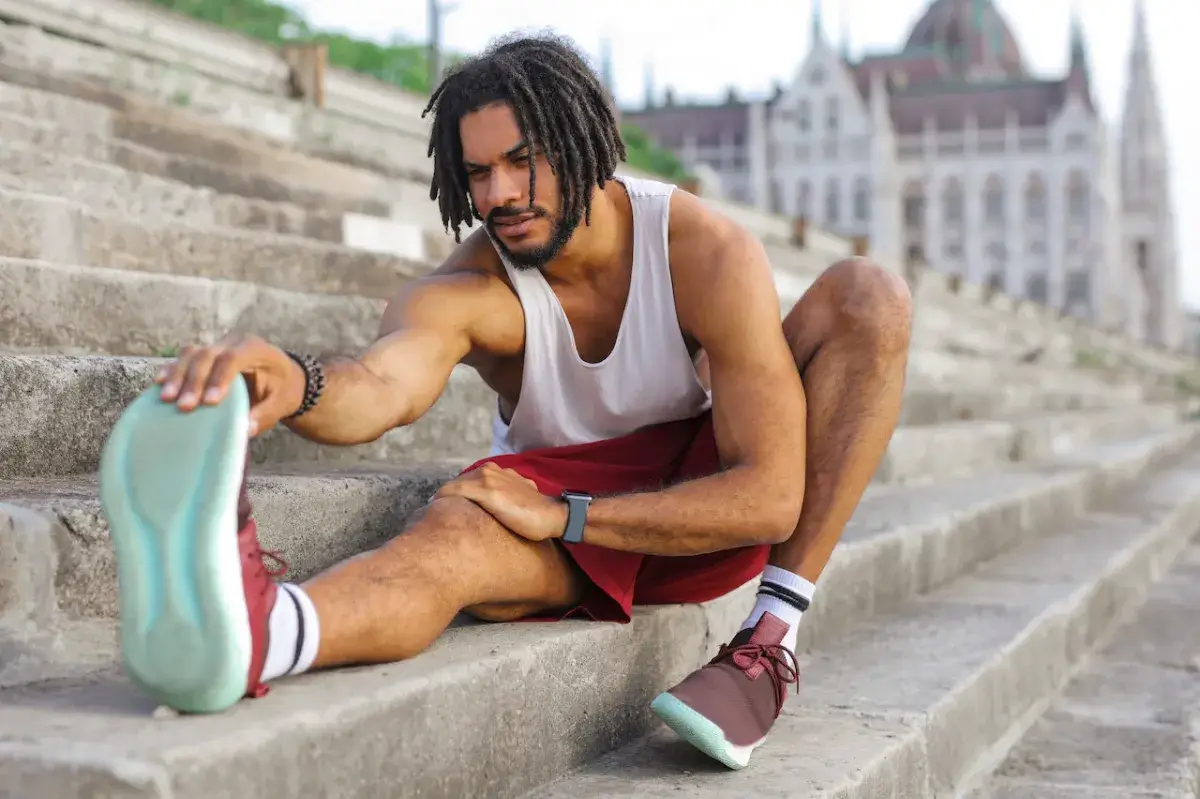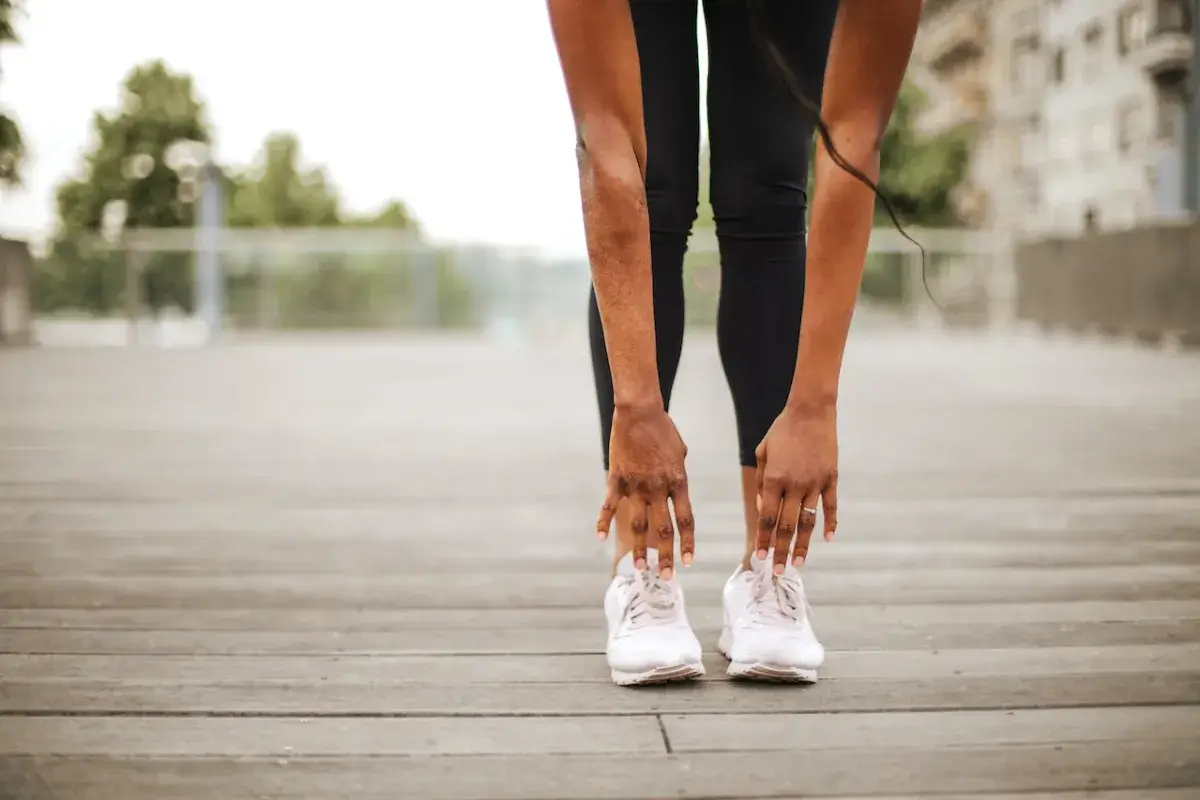Hey there, fellow running enthusiast! If you're anything like me, you might have heard about the exciting world of 5k races and are now ready to dive right in.
How many miles is a 5k? Well, I've got the scoop for you – it's 3.1 miles of pure potential and exhilaration. Whether you're a seasoned runner aiming for a new challenge or someone lacing up their running shoes for the first time, a 5k is a fantastic goal to pursue.
And guess what? I'm here to share my story, ten tried-and-true tips for acing your 5k journey, and a handy 5k run plan to set you up for triumph. Let's lace up and hit the road to conquer that 5k finish line together!
| Race Category | Distance (KM) | Distance (Miles) | Difficulty | Duration |
|---|---|---|---|---|
| 5K Run | 5 Km | 3.1 Miles | Beginner | 20 - 30 minutes |
| 10K Run | 10 Km | 6.2 Miles | Intermediate | 40 - 60 minutes |
| 15K Run | 15 Km | 9.3 Miles | Intermediate | 1.5 - 2 hours |
| Half-Marathon | 21.1 Km | 13.1 Miles | Intermediate | 1.5 - 2.5 hours |
| Full-Marathon | 42.2 Km | 26.2 Miles | Advanced | 3.5 - 5 hours |
| Ultra-Marathon | 50 Km + | 31 Miles + | Expert | 5+ hours |
How Many Miles is a 5k?
Kilometers and miles are two different units of measurement used to quantify distance. The majority of countries worldwide use kilometers as their primary unit of measure. However, in the United States and a few other nations, miles are the preferred unit of measurement.
1 kilometer (km) equals approximately 0.621371 miles (mi). Conversely, 1 mile is about 1.609344 kilometers.
When dealing with a 5k race or distance, you're referring to a 5-kilometer distance. You can use the conversion factor of 0.621371 to convert kilometers to miles:
5 km * 0.621371 mi/km ≈ 3.106855 miles
Rounded to a more common decimal place, 5 kilometers is approximately 3.1 miles.
So, to answer a common question, "How much miles is 5k?" 5k is 3.1 miles around. Similarly, if you wanted to convert other distances from kilometers to miles, you could use the same conversion factor to get the approximate equivalent in miles.
Joshua Cheptegei holds the official world record in the 5000 meters with 12:35.36 for men and Faith Kipyegon with 14:05.20 for women. World Athletics (previously known as the International Association of Athletics Federations or IAAF) acknowledged the initial world record in the men's 5000 m back in 1912.
Both novice and seasoned runners are drawn to this distance's popularity. It offers a manageable challenge for beginners, allowing them to gradually build stamina, strength, and skill within a few months to cross the finish line confidently. Simultaneously, it provides a rewarding challenge for speedy competitors aiming to enhance their finish times.
How Many Miles is a 10k?
A 10-kilometer distance is equivalent to approximately 6.21371 miles. Considering the relationship between kilometers and miles, if you were to run a 10k race, you would cover about 6.2 miles.
How Many Miles is a 15k?
A 15-kilometer distance is equivalent to approximately 9.32057 miles. If you were to cover a distance of 15 kilometers, you would be running about 9.32 miles.
How Many Miles is a Half Marathon?
A half marathon is precisely 21.1 kilometers or 13.1 miles run. The distance of this race is quite popular and commonly used as a preparation step for runners training for a full marathon.
Many runners find the half marathon distance attractive as it demands endurance and less intense training than required for a full marathon. Nevertheless, it's still a considerable distance that necessitates proper training.
How Long is an Ultramarathon?
An ultramarathon is any race or organized running event beyond the standard marathon distance of 26.2 miles (42.195 kilometers).
Ultramarathons can vary greatly, with typical distances ranging from 50 kilometers (31.07 miles) to 100 miles (160.93 kilometers) or more. There are even ultramarathons that go for multiple days and cover distances exceeding 200 miles.
The exact distance of an ultramarathon depends on the specific event or race, as there is no set standard distance like there is for a marathon. Ultramarathons can take place on various terrains, including trails, roads, mountains, and deserts, and they challenge participants with long-distance and often challenging environmental conditions.

Why 5k Is a Popular Race Distance?
The 5k (5 kilometers) race distance is popular with most runners for several reasons:
1. Achievable for Most People:
Compared to longer races like half marathons and marathons, the 5k race is considered short. As a result, it is accessible and achievable for a wide range of participants, including beginners, casual runners, and those who may not have extensive training experience.
2. Quick and Convenient:
Training for a 5k race requires less time commitment than training for longer distances. Many people can fit in the necessary training without a drastic lifestyle change. The race can often be completed in under an hour, making participating fun and easy even on a busy schedule.
3. Community and Fun:
5k races foster a sense of togetherness and enjoyment, often organized for charitable causes, themed fun runs, or celebrations. These events attract those looking for a positive and gratifying experience rather than an overly competitive race.
4. Motivation and Goal Setting:
For beginners, a 5k race can serve as a great initial goal to work towards. It provides a tangible target for training, helping individuals stay motivated and track their progress.
5. Variety and Challenge:
While a 5k might be relatively short, it still offers a challenge. Runners can improve their speed and endurance, making it a versatile distance that appeals to both beginners and experienced runners.
6. Family Participation:
Many 5k events are family-friendly, allowing participants of all ages to join the running community. This inclusivity can make it a shared activity for families or groups of friends.
7. Gateway to racing:
The 5k distance is a stepping stone for those interested in progressing to longer races. It provides an opportunity to experience the atmosphere of a race without the intensity of a marathon or half marathon.
8. Immense Health Benefits:
Participating in a 5k training program motivates individuals to maintain a consistent physical exercise routine, which can lead to improved cardiovascular health and overall well-being.
The 5k race distance's popularity stems from its accessibility, inclusivity, manageable training requirements, and various associated events and themes. It serves as an excellent entry point for people interested in running and offers a well-rounded experience for both recreational and competitive runners.
What's the Average Time for a 5k?
The duration of a 5-kilometer race varies widely depending on the participant's age group, fitness level, experience, terrain, and weather conditions.
Elite Runners:
Elite or professional runners frequently complete a 5k race in approximately 14 to 18 minutes for men and 16 to 20 minutes for women.
Experienced Runners:
For experienced recreational runners, a competitive time might be around 18 to 25 minutes for men and 20 to 28 minutes for women.
Recreational Runners:
Many recreational runners aim to run a 5k in approximately 25 to 35 minutes for men and 28 to 40 minutes for women. These times can provide a good balance between enjoyment and fitness goals.
Beginners:
Beginners and casual runners might take 30 to 45 minutes or more to run a 5k. The focus here is often on participation, health benefits, and personal achievement.
Remember that these times are approximate and vary significantly based on individual factors. The important thing is to set goals that are appropriate for your fitness level, gradually improve over time, and enjoy the process of running and participating in races.

Is Running a 5k in 25 Minutes a Good Time?
Running a 5k in 25 minutes is generally a good time for most people. It falls within the range of competitive times for recreational runners and demonstrates reasonable physical fitness and running ability.
Remember that "good" is subjective and can vary depending on individual goals, fitness levels, and the context of the race. For beginners, achieving a 25-minute 5k can be a significant accomplishment. More experienced runners might aim for even faster times, but that doesn't diminish the achievement of completing a 5k in 25 minutes.
Ultimately, the most important thing is to set meaningful goals and continue challenging yourself based on your progress and aspirations.
How to run 5km in 20 minutes?
Running a 5k in 20 minutes requires high fitness, speed, and proper training beforehand. Achieving this goal will likely take dedicated effort and consistency. Here's a general guideline to help you work toward running a 5k in 20 minutes:
- Build a Solid Running Base: Improving fitness is crucial for faster running time. Focus on running longer distances at a comfortable pace to build your endurance.
- Structured Training Plans: Adhere to a structured training plan encompassing different types of runs, like interval training, tempo runs, and long runs. A good training plan will help you develop speed, endurance, and recovery.
- Interval Training Plans: Intervals involve alternating between periods of high-intensity running and periods of rest or a slower pace. Incorporate sprint intervals, where you run a 5k at near-maximum effort for shorter distances (e.g., 400 meters), followed by periods of recovery. These intervals help improve speed and cardiovascular fitness.
- Tempo Runs: Tempo runs require running at a challenging yet manageable pace for a prolonged duration. This pace is faster than your leisurely pace but not an all-out sprint. This training improves your lactate threshold, allowing you to sustain a faster pace for longer.
- Hill Training: To build up your leg strength and increase your speed, try incorporating hill repeats into your running routine. Running uphill is an excellent way to challenge your muscles and cardiovascular system, improving performance and faster progress.
- Stay Consistent: Consistency is the key. Stick to your training plan, and gradually increase the intensity and volume of your workouts. Avoid overtraining by allowing for adequate rest and recovery.
- Nutrition and Hydration: Fuel your body with the right nutrients to support your training. Proper hydration and balanced nutrition are essential for optimal performance.
- Rest and Recovery: Remember to consider the importance of rest and recovery. Your body needs time to adapt to the increased demands of training. Include rest days in training plans and prioritize sleep.
- Mental Preparation: Running at a fast pace requires mental strength and focus. Visualize your goal, stay positive, and practice cognitive strategies to push through challenges during the race.
- Race Strategy: On race day, have a clear strategy. Start strong but slowly. Break the race down mentally into segments, and maintain a consistent pace throughout. Utilize your training and mental preparation to push through any challenging moments.
Remember that achieving a 20-minute 5k time is a challenging goal that may take time. Progress may not be linear, so be patient with yourself and celebrate the smaller milestones along the way. If you're new to intense training or have any underlying health concerns, consider consulting a coach or medical professional before embarking on a high-intensity training plan.

My 5k training plan
I relied on the Couch to 5k (C25k) training program when I started running. The program is specifically designed for beginners like myself, allowing them to improve their running endurance over several weeks. This makes it an ideal fit for those new to running and looking to prepare for a 5k race. Here's how I followed the plan:
Week 1-2: Walk-Run Intervals
I started by alternating between walking and running. Each session began with a brisk 5-minute warm-up walk. Then, I'd alternate between running for 1 minute and walking for about 1.5-2 minutes. I did this workout three times a week.
Week 3-4: Increasing Run Time
I continued the 5-minute warm-up walk. I gradually increased my running time this time while reducing my walking time. For example, I ran for 2 minutes and then walked for about 1.5 minutes. The goal was to achieve around 25-30 minutes of total workout time. I repeated this workout three times a week.
Week 5-6: Building Endurance
After the warm-up walk, I increased the run intervals to 3-5 minutes, with 1-2 minutes of walking between. I aimed to extend the total workout time to 30-35 minutes. I completed this routine three times a week.
Week 7-8: Longer Runs
Once again, I started with the 5-minute warm-up walk. This time, I increased my run intervals to 5-8 minutes, with 1-2 minutes of walking. I worked on extending the total workout time to around 35-40 minutes. I followed this routine three times a week.
Week 9-10: Final Prep
In the last phase of the plan, I continued with the 5-minute warm-up walk. My running intervals grew longer, sometimes up to 20-25 minutes without walking breaks. I gradually increased my total workout time to about 40-45 minutes. I followed this routine three times a week for 10 weeks. By the end of it, I could run for approximately 30 minutes without any breaks. This was a significant accomplishment and prepared me well for my 5k race. The organized plan allowed me to improve and boost my confidence while running.
Remember, this is just an example of my take on the beginner to 5k plan. Your journey might differ, so adjust the program according to your fitness level and progress.
How Long Does it Take to Train to Run a 5k?
I started my training with uesca certified running coach. Training for a 5k is not a big deal. My journey to train for a 5k race revealed that the duration of training can vary based on individual factors. As someone without running experience, the typical beginner to 5k training plan spanned around 8 to 10 weeks. This gradual program started with walking and running, progressing to continuous running for 5 kilometers (3.1 miles).
If you already have a moderate fitness level or some running background, you can prepare for a 5k in a shorter timeframe. For instance, with 4 to 6 weeks of focused training that gradually increases running duration and intensity, you could be ready to tackle a 5k race.
For those aiming to improve their performance, such as running a 5k faster, the training timeline could extend beyond the initial 8 to 10 weeks. Training to enhance speed, endurance, and overall fitness could require several months of consistent effort.
Remember to tailor your plan, set achievable goals, and prioritize proper rest to avoid injuries. Seeking advice from experienced runners or coaches, particularly if you're new to running, can provide valuable insights and help you craft a specific training that suits your needs and aspirations.

Is running a 5k hard?
Based on my experience, running a 5k can be both a challenge and an achievable goal, depending on where you are in terms of fitness and training. Here's what I've learned:
For Beginners:
- When I was new to running, a 5k felt quite demanding. I had to build up my endurance and learn to pace myself gradually.
- Following a structured training plan like the Couch to 5k program was immensely helpful. It eased me into running by progressively increasing the time and distance I could run.
For Regular Exercisers:
- I exercised regularly—tackling a 5k felt like a realistic target. My existing fitness level certainly made the training process smoother.
- I adjusted my training focus to improve my pace and build the stamina needed for continuous running.
For Experienced Runners:
- As an experienced runner used to longer distances, the 5k was a shorter challenge. However, it allowed me to push my limits and work on speed.
- I aimed to run the 5k faster and achieve a personal best time
Generally, running a 5k involves maintaining a moderate to vigorous effort throughout the race. Factors like your pace can influence the perceived difficulty, the course's terrain, weather conditions, and mental state.
The sense of accomplishment upon completing a 5k is gratifying. From my initial training to crossing the finish line, the journey instilled confidence and motivated me to pursue further fitness goals. Remember to listen to your body, train smartly, and find joy.

Is Running 5 Miles A Day Good?
Running 5 miles a day can be a beneficial and healthy exercise routine for many people, but whether it's "good" depends on various factors, including your fitness level, goals, and overall lifestyle. Here are some considerations:
Pros of Running 5 Miles a Day:
- Cardiovascular Health: Running can enhance heart health, fortify the cardiovascular system, and decrease the likelihood of developing heart disease.
- Weight Management: When paired with a balanced diet, running burns calories and promotes weight loss.
- Endurance and Stamina: Running 5 miles a day can help build endurance and stamina over time, improving your ability to sustain physical activity.
- Mental Health: Running releases endorphins, boosting mood and reducing stress and anxiety.
- Consistency: A daily running routine can help establish a habit of consistent exercise, which is essential for overall fitness.
Considerations and Potential Drawbacks:
- Injury Risk: Not taking enough rest and recovery time when running every day can raise the chances of getting overuse injuries. Listening to your body, incorporating rest days, and varying your workouts are essential.
- Time Commitment: Running 5 miles can take significant time, which might be challenging to fit into a busy schedule.
- Burnout: Over time, running the same distance every day might lead to burnout or reduced motivation. It's good to mix up your routine with different types of workouts.
- Variety: While running is an excellent form of exercise, incorporating other activities (strength training, flexibility exercises, cross-training) can provide a more balanced fitness regimen.
- Individual Differences: What's "good" varies from person to person. Some individuals may thrive with daily running, while others might benefit from trying different workouts.
If you're considering running 5 miles a day, it's crucial to approach it sensibly. Gradually build up to this distance if you're new to running or increasing your mileage. Pay attention to your body's signals and make sure you have appropriate footwear and form. Consult a professional healthcare provider who can help determine if this routine aligns with your fitness goals and overall health.
How Long Would it Take to Walk a 5k?
The time it takes to walk a 5k (5 kilometers or approximately 3.1 miles) can vary depending on your walking speed, fitness level, terrain, and other factors. Here's a general guideline:
Brisk Walk:
Walking briskly, around 3.5 to 4 miles per hour (5.6 to 6.4 kilometers per hour), you could complete a 5k in roughly 45 to 50 minutes.
Moderate Walk:
Walking at a moderate pace, around 3 miles per hour (4.8 kilometers per hour), you might finish a 5k in about 60 minutes.
Casual Walk:
Walking at a casual pace, around 2.5 miles per hour (4 kilometers per hour), could take around 75 to 80 minutes to complete a 5k.
It's important to note that these are just rough estimates. The actual time could be faster or slower depending on individual factors and the specific conditions of the walk.
If you're participating in a walking event or aiming to complete a 5k walk, the main goal might be to enjoy the experience, promote physical activity, or support a cause. The time it takes is secondary to these objectives. Listen to your body, stay hydrated, and consider your fitness level when determining your walking pace.

Is it OK to Walk During a 5k Race?
Yes, walking during a 5k race is okay, and many participants incorporate walking as part of their strategy. Walking during a 5k can have several benefits:
- Rest and Recovery: Incorporating short walking breaks allows your muscles to recover a bit, which can help you maintain your overall pace and finish strong.
- Pacing: Walking can help you manage your energy and pacing. Many runners and walkers find that alternating between running and walking helps them maintain a steady pace throughout the race.
- Hydration: Walking at aid stations allows you to properly hydrate, if needed, without risking slowing down your pace.
- Injury Prevention: If you're concerned about the impact of continuous running on your body, walking can reduce the strain on joints & muscles.
- Enjoyment: Walking allows you to appreciate the race atmosphere, scenery, and crowd support without feeling rushed.
- Mental Breaks: Breaking up the race with walking can provide mental breaks and help you stay mentally strong throughout the event.
I always remind myself that races are all about personal goals and achievements. Whether I run the entire distance, walk the whole distance, or use a combination of both, what matters most is that I participate and enjoy the experience. It's reassuring to know that organized races typically include participants with varying fitness levels, and walkers like me are warmly welcomed and play a vital role in the event.
Before the race, it's a good idea to check the race guidelines to ensure there are no specific rules about walking. Most 5k races accommodate both runners and walkers. If you need help approaching the race, consider consulting with more experienced runners or seeking advice from the race organizers.
What Gear Do I Need to Train for My First 5k?
Training for your first 5k doesn't require a lot of specialized gear, but having the right essentials can make your training more comfortable and effective. Here's an essential list of gear you might need:
- Running Shoes: It is crucial to have well-fitting running shoes that offer sufficient support. Visiting a specialized running store for a fitting is recommended to identify the suitable pair for your foot type and running technique.
- Comfortable Clothing: Wear moisture-wicking and breathable clothing that allows for freedom of movement. This could include shorts, leggings, moisture-wicking shirts, and sports bras (for women).
- Socks: Choose moisture-wicking socks that prevent blisters and provide cushioning where needed.
- Sports Watch or App: A sports watch, fitness tracker, or smartphone app can help you track your running time, distance, and pace during your training.
- Hydration: Invest in a handheld water bottle, a hydration belt, or a hydration pack to stay hydrated during longer training sessions.
- Safety Gear: If you're running in low-light conditions, reflective clothing or accessories and a headlamp can help you stay visible to others.
- Sun Protection: When training outside, wear sunscreen and sunglasses to shield yourself from harmful UV rays.
- Comfortable Sports Bra (for Women): If you're a woman, a well-fitting sports bra is crucial for comfort and support during your runs.
- Headphones: If you enjoy listening to music or podcasts while you run, consider using headphones. Please ensure they're comfortable and make you aware of your surroundings.
- Foam Roller or Massage Tools: This can help post-run recovery by relieving muscle soreness and tightness.
- Training Plan: While not a physical item, a well-structured plan (like Couch to 5k) is essential to guide your training progress.
- Optional Accessories: Some runners also use accessories like running hats, visors, GPS watches, energy gels, and running belts for carrying essentials.
Remember that comfort and fit are essential when selecting gear. Don't feel pressured to buy everything at once—start with the basics and gradually add items that enhance your comfort and enjoyment as you progress in your training.
Plan your fuel
Planning your fuel is essential to preparing for a 5k race or any other endurance event. Proper nutrition before, during, and after the race can help optimize your performance and aid recovery. Here's a general guideline for fueling:
Before the Race:
- Hydration: Start the day well-hydrated and continue to drink water leading up to the race. However, avoid excessive water intake immediately before the race to prevent discomfort.
- Pre-Race Meal: Aim to eat a balanced meal about an hour before the race. Opt for easily digestible carbohydrates such as whole grains and fruits, lean proteins, and moderate healthy fats. Avoid heavy or high-fiber foods that could cause digestive issues.
- Energy Snack: If you're racing in the morning and don't have much time to eat, consider a small energy snack like a banana, energy bar, or a handful of pretzels about 30 minutes before the race.
During the Race:
For a 5k race, most people don't need to hydrate during the race. Drinking water at water stations is typically sufficient. However, if you need a quick energy boost, you can carry a small energy gel or chew if it's something you've trained with during longer runs.
After the Race:
- Hydration: Drink water after the race, especially on a warm day.
- Post-Race Meal: Aim to eat a balanced meal within 1-2 hours after the race. This meal should include carbohydrates to replenish glycogen stores, protein for muscle recovery, and healthy fats.
- Recovery Snack: If a full meal isn't immediately possible, have a recovery snack with an excellent carbohydrate-protein ratio, such as a protein shake, yogurt with fruit, or a peanut butter sandwich.
Remember, everyone's nutritional needs are different. Practicing your pre-race meal and snacks during training is an excellent idea to see what works best for your body. Avoid trying new foods or supplements on race day to prevent unexpected digestive issues.
If you have dietary needs or concerns, consider consulting a registered dietitian specializing in sports nutrition.

Tips for Running a 5k
Here are some of my professional tips to elevate your 5k running experience:
- Gradual Progression: Build your endurance progressively. Increase weekly mileage by no more than 10% to minimize the risk of injury.
- Cross-Train: Incorporate cross-training activities like swimming or cycling to improve overall fitness and reduce strain on your running muscles.
- Strength Training: Include exercises to enhance muscle balance and stability, reducing the risk of overuse injuries.
- Nutrition Strategy: Prioritize balanced nutrition. Consume carbohydrates for energy, lean proteins for recovery, and healthy fats for overall health.
- Recovery Days: Allow ample rest between runs for recovery. Active recovery, like light jogging or yoga, can also repair muscles.
- Dynamic Warm-Up: Before running, engage in dynamic stretches to increase blood flow and warm up your muscles for optimal performance.
- Interval Training: Integrate interval training to improve speed. Alternate between high-intensity sprints and recovery periods.
- Race Simulations: Practice with mock 5k runs to get accustomed to race-day conditions and fine-tune your pacing strategy.
- Mindfulness: Practice mental techniques like visualization and positive self-talk to boost confidence and manage race-day nerves.
- Professional Guidance: Consider working with a running coach or sports physiologist for personalized training plans and expert advice.
Remember, combining professional advice with your dedication can lead to a rewarding 5k experience. It's about optimizing your potential, setting goals, and enjoying the journey of improvement.
